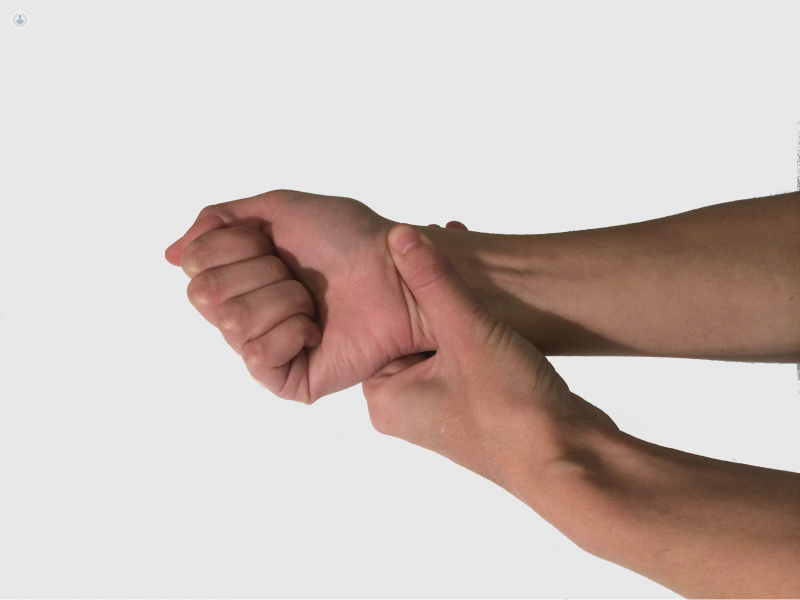Stiff hands
Mr Ritesh Sharma - Orthopaedic surgery
Created on: 05-08-2018
Updated on: 03-21-2023
Edited by: Conor Dunworth
What is hand stiffness?
Hand stiffness can involve a reduction in the overall range of movement in your hands, or greater difficulty within that range of movement. Stiffness might be constant or it might be worse at certain times of day. Depending on the cause of the stiffness, symptoms may worsen over time, stay the same, or improve.

What causes hand stiffness?
Some of the main causes of hand stiffness include injuries, arthritis, and nerve conditions such as carpal tunnel. Rarer causes include Dupuytren’s contracture and scleroderma.
Injuries
Sprains, bruises, fractures, and wounds are all injuries that can result in pain or stiffness in the hands. Tendonitis (inflammation of the tendons) is a common reaction to injury, and usually the stiffness should improve as the hand heals. In other cases, such as a rupture to a tendon, or a significant burn injury, there could be permanent damage to mobility.
One class of injury, known as repetitive strain injury, can cause pain and stiffness in the hands due to overuse. In this situation, it’s important to identify the activity that is causing the pain and try to reduce that activity. There are also a number of treatments a GP might offer, such as anti-inflammatory medication, a heat pack, or physiotherapy.
Finally, it is possible for the soft tissue in your hands to be damaged by infection. Many infections can be treated with antibiotics, so see a doctor if you’ve noticed a discolouration or swelling in your hands that isn’t going away.
Arthritis
Rheumatoid arthritis and osteoarthritis are common causes of hand stiffness in older people. As well as stiffness you might experience join pain and swelling, and in the case of rheumatoid arthritis symptoms are often worse in the morning.
There are a number of treatments for arthritis. The exact treatment that is right for you will depend on what type of arthritis you have.

Carpal tunnel
Carpal tunnel is a nerve condition which affects the hands and arms. The main symptoms are a tingling sensation and numbness but sometimes weakness and stiffness can occur. Symptoms often go away on their own or with treatment (e.g. wearing a wrist splint) but if they persist it is important to see a doctor.
Rarer causes
- Dupuytren’s Contracture is a progressive condition which usually occurs after the age of 50. It gradually pulls the fingers into a bent position, and mainly affects the ring finger and little finger. Treatment can slow the progression of the condition.
- Scleroderma is a skin condition which results in the thickening of the skin in various parts of the body. It can result in joint inflammation and swelling, especially in the mornings. Schleroderma is a rare condition with only 3-4 new cases a year.
